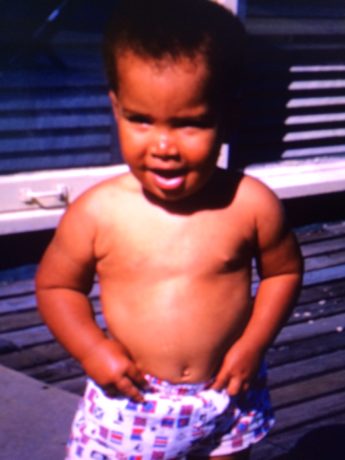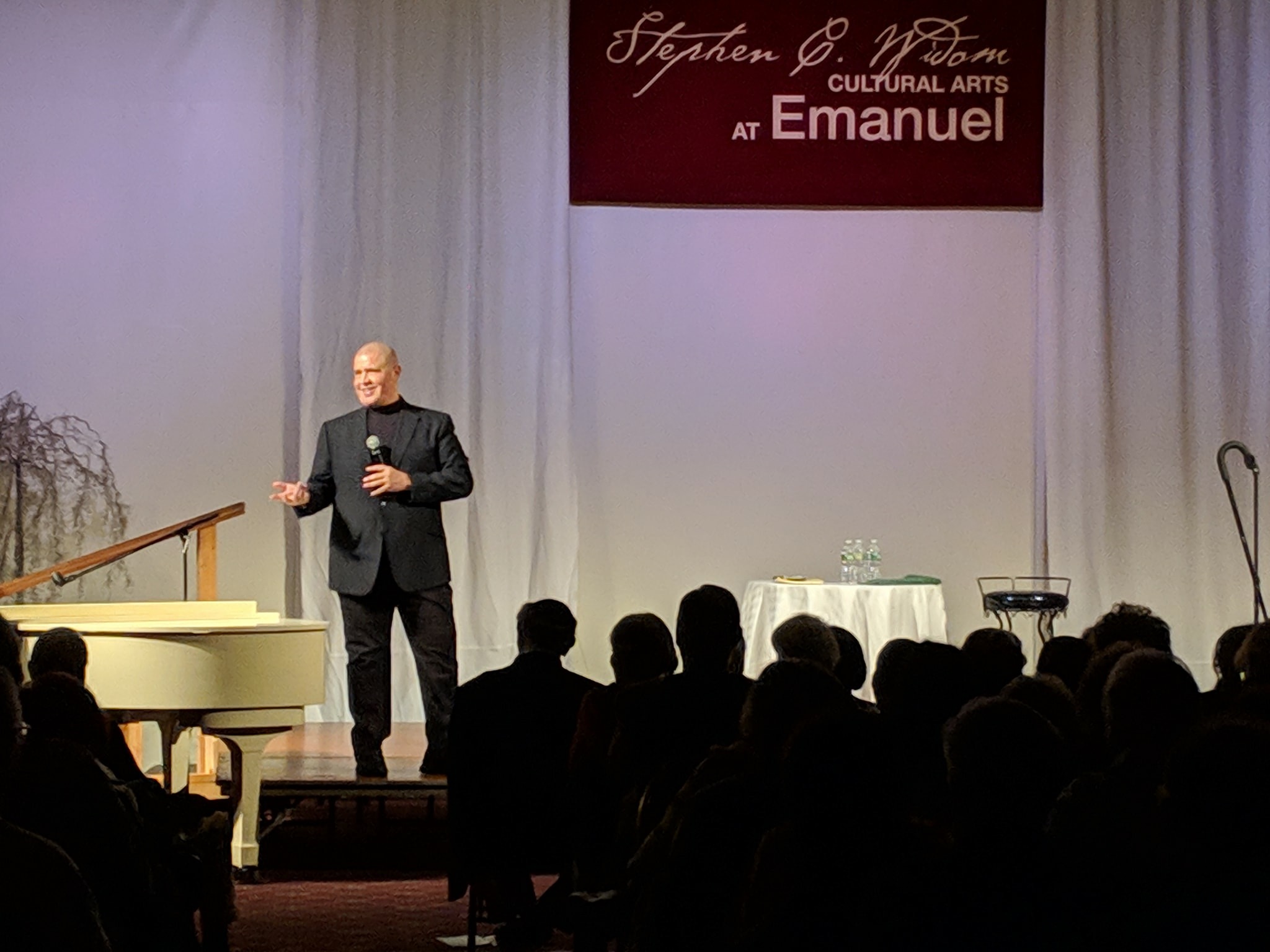This is how comedian Sarge tells the story of how he ended up in Great Neck as a baby with parents who didn’t know he wasn’t white:
In 1961, his birth mother found herself pregnant with a child that represented what her Orthodox Jewish community deemed two major sins: sex out of marriage and sex with a black man. So she fled.
She journeyed from Chicago to Miami and didn’t tell anyone, not even the doctor, that her son would not be fully white.
Around the time she arrived, one of the doctor’s friends, a Jewish man living in New York, contacted him. The friend’s daughter was looking to adopt.

“It’s funny, a girl came in today, very well educated … beautiful white skin, there’s no father on record, and this pregnancy is pretty much a secret so, wink wink nudge nudge, come down, I’ll do the necessary paperwork,” Sarge said, retelling the doctor’s response.
The doctor then asked for his friend to pick him up a babka from Ebinger’s Bakery in Brooklyn.
And that’s how the New York Jew became Sarge’s grandfather.
Sarge’s life has taken him everywhere since then: from boarding school and homelessness to the stage at Radio City Music Hall.
He’d been through lifetimes of successful and broken careers before he even landed in his current one: performing mostly improvised, often biographical musical comedy performances in both synagogues and treatment centers around the world.
For the first time, that routine brought him back to the North Shore earlier this month, where he performed for a packed crowd at Temple Emanuel in Great Neck and a second night at Sid Jacobsen JCC in Roslyn.
“I’m very improvisational. I’m very off the cusp,” Sarge said. “You can’t make it up. It’s stories from my life.”
Sarge was Steven Pickman until his first day at Boston University when he was jokingly given the nickname.
“Before I knew it I was Sarge,” he said. “It was the first time in my life that I was given a nickname that was not pejorative.”
He had been treated like an outcast in Great Neck because of his race, he said.
“I was always made fun of,” Sarge said. “It was hard because I’m not white, and that’s how they treated me.”
But Great Neck was also where he discovered some of his talents.
When he came home from a performance of “The Sound of Music” at age 5 and began playing the songs on the piano without ever having touched one, his parents decided he deserved the best instruction available.
So he started taking lessons with Juilliard instructors at age 6. That lasted until the instructors said, “he already knows how to play – we’ve just been taking your money,” which was about eight years, Sarge said.
At 6, Sarge said he also set a goal to become a comedian, but that goal grew distant, and he forgot about it until 1990.
It was during college that he encountered the vices that would stay with him for years: drugs and alcohol.
He had attended an all-boys boarding school in Connecticut after being thrown out of St. Paul’s School in Garden City, which he attributes to racism and anti-Semitism.
So when he found himself at Emory University, he said being around women for the first time was overwhelming.
“The social fear was enormous of having girls around, and I found that smoking pot and drinking beer was a good way to get rid of the anxiety,” he said.
When his grades began to suffer and he found himself directionless, he transferred to Boston University without telling his parents.
His studies there led him to a career at the world’s top advertising agencies in New York City. But drugs and alcohol followed him. He paired a six-figure salary with his cocaine addiction.
“It was free and it was everywhere,” Sarge said.
When he decided to make the move to sportscasting, his persistence in directly dialing those at the tops of the largest networks landed him a production assistant job at ABC.
But after he got fired there and fired from his next job at CBS, the money soon ran out. He became homeless.
Addictions don’t care if you’re poor. They demand to be supported.
So one day, Sarge went to a friend’s apartment, which he had the keys for, took jewelry and sold it.
“He came and found me and said, ‘Did you steal my stuff?’ and I said, ‘Yes I did,’” Sarge recalled. “Twenty-four hours later, I was in Florida.”
Within three days of his time at a treatment center, he rid himself of addiction and realized that he wanted to be a comedian. In fact, he had always wanted to be a comedian, he said.
The desire to drink disappeared after the first night, during which he prayed, he said.
The realization about his career happened on the third day, when he meditated.
“While I was meditating it came to me that when I was 6 years old my grandfather took me to see Don Rickles,” Sarge said.
It was then that he remembered that he’d always wanted to pursue comedy. So he did. He went from cleaning bathrooms at a health club, to playing piano at an Italian restaurant to performing at open mics in New York City.
An agent saw him at Carolines on Broadway, signed him in 1995 and Sarge became an opening act for the big names at Radio City Music Hall: Donna Summers, the Temptations, Aretha Franklin – the list goes on.
After an unsuccessful shot at television, he found success in working on cruises, which was where he developed his act to include the piano.

He met his current wife on a cruise ship, and they moved to Florida. And in making a comedy career on land, Sarge discovered that he was able to connect with people in treatment centers and prisons.
“I have this incredible duality where I’m able to do the two things I’m best at: staying sober and being funny,” he said.
He’s performed all over the world, but Sarge said performing at Temple Emanuel was the “greatest night of my career so far.”
There were 900 people there, including people he knew from his childhood, he said.
“It was unbelievable,” he said. “It was an epic night.”



